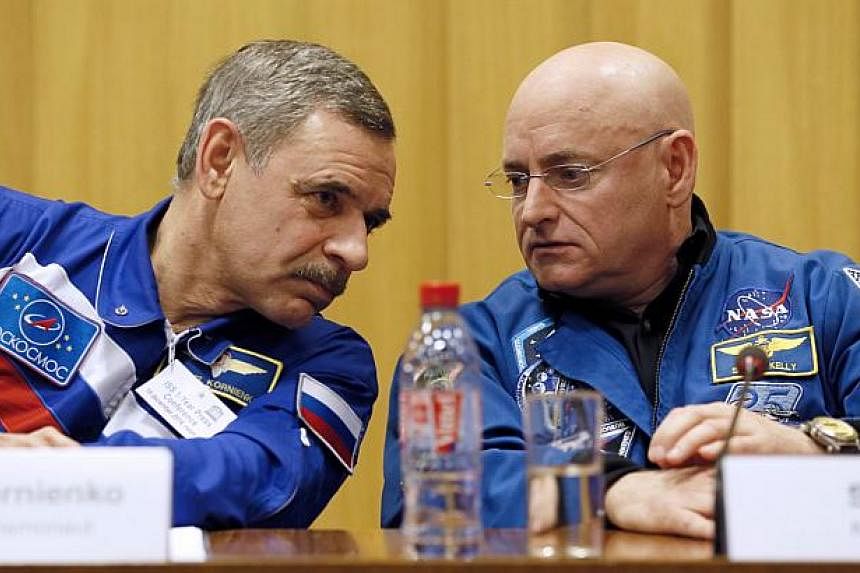PARIS (AFP) - A US astronaut and a Russian cosmonaut gearing up for the longest flight on the International Space Station (ISS) said on Thursday they were unfazed by any turbulence in their countries' political ties.
Nasa spacefarer Scott Kelly and Mr Mikhail Kornienko of the Russian space agency Roscosmos are to launch to the ISS in 2015 for a year-long stay designed to be a test-bed for a future trip to Mars.
The ISS is a rare area of US-Russian cooperation that has not been hit by the Ukrainian crisis, which has prompted Washington to impose sanctions on Moscow.
In space, "we rely on each other implicitly for our lives," Mr Kelly, 50, said at a press conference in Paris to showcase the mission.
"Any political issues that exist between our countries is something we don't even discuss. We're great friends, we're colleagues, we're professionals. That's the way it has to be."
KMr ornienko, 54, added: "There is no borders in space between us. It's a great example of... working together, especially for politics on the ground."
Their spell will be the longest stay aboard the ISS since the orbital outpost in space was manned in 2000.
The longest-ever space trip was by cosmonaut Valeriy Polyakov, who in 1994-1995 spent 437 days in the Russian-Soviet station Mir.
Interest in long-duration flights has stirred anew with plans, still on the far horizon, for a manned trip to Mars around the 2030s.
That would be a quest that would take about three years round trip.
It would also put crew members at risk of problems ranging from bone-density and muscle deterioration to DNA damage from space radiation, visual impairment and psychological stress.
"If we're ever going to go to Mars some day, the International Space Station is really a great platform to learn much about having people live and work in space for longer durations," said Mr Kelly.
"It's close to the Earth and it's a great orbiting facility. This one-year flight is one of many stepping stones towards leaving low-Earth orbit again," he said referring to the Apollo lunar landings, which ended in 1972.
Nasa has 19 experiments planned into the impacts of long-term flight, and Roscosmos 14.
In total 16 countries work on the ISS, whose cost is mainly shouldered by the United States. Next year's stay will roughly double the current maximum stay of up to six months.
Since Nasa phased out the space shuttle system in 2011, it depends entirely on Russia to send its astronauts to the ISS. The transport, aboard Soyuz rockets, costs the United States US$70 million (S$92 million) per person.
Nasa is developing a four-person capsule system, Orion, which took a first, unmanned, test flight on Dec 5.

